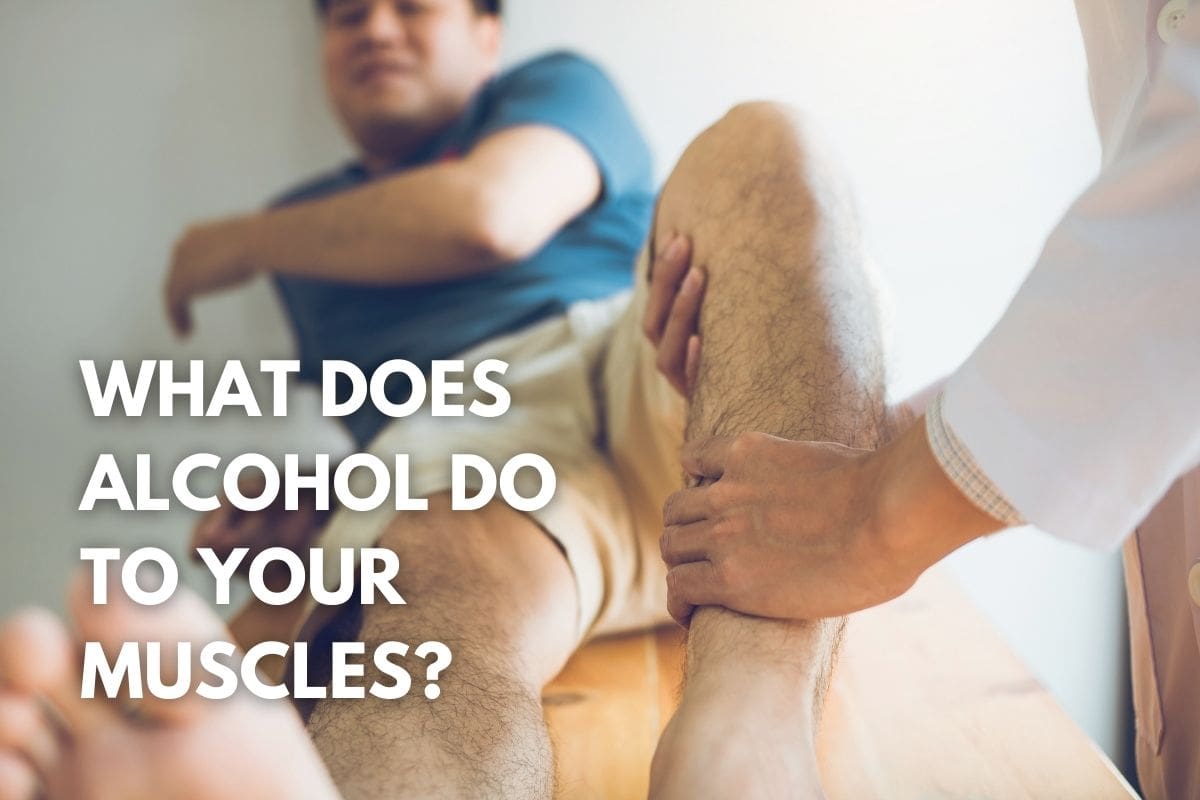There is a strong connection between alcohol use and our body. Alcohol use can decrease overall physical fitness and increase our risk of adverse health effects. Alcohol can impair muscle protein synthesis (MPS), which helps us build new muscle. Because alcohol causes inflammation, it makes it much more challenging to build muscle, resulting in muscle weakness.
How Alcohol Affects Your Muscles
Overdrinking and excessive consumption of alcohol can cause damage to your muscles and joints. Over time, these problems can persist and become serious. Some of the most common effects of alcohol on muscles include:
- Muscle weakness
- Muscle pain
- Muscle cramps
- Lower muscle efficiency
- Alcohol-induced rhabdomyolysis
Alcohol & Muscle Development
Alcohol use decreases overall fitness and can impact someone’s ability to meet their fitness goals. First of all, alcohol is notorious for having empty calories, meaning calories with little to no nutritional value.
Alcohol also reduces blood supply to your muscles and obstructs the proteins that help them grow. It can lead to muscle degeneration. Muscle degeneration is known as rhabdomyolysis. Chronic alcohol usage is one of the leading causes of rhabdomyolysis due to the effects of drinking on muscular tissues.
At last, drinking alcohol prevents efficient muscle healing by decreasing the secretion of human growth hormones. As a result, people often feel sore longer and notice slower muscle growth results. Alcohol increases the hormone cortisol; the same hormone triggered in stressful situations, which can destroy all the muscles you’re trying to build.
Effects of Alcohol on the Muscles
The damage alcohol causes to your muscles depends on your drinking patterns. If you’re dealing with an alcohol use disorder, you’re more likely to deal with the long-term consequences of drinking. Here is how alcohol affects your muscles long-term:
- Increased Risk of Arthritis: Alcohol affects the joints and muscles, increasing your risk of arthritis. Arthritis is a disease resulting from inflamed joints and can make movement very painful.
- Type II Muscle Fiber Atrophy: One possible long-term effect of alcohol abuse is type II muscle fiber atrophy, which causes fast-twitch muscle fibers. This condition gradually decreases muscle mass and strength, making movements harder.
- Risk of Alcohol-Induced Rhabdomyolysis: This condition causes the breakdown of muscles in as many as 67% of cases involving alcohol use disorders. This condition can also cause the release of a damaging protein into the bloodstream that can harm the kidneys. Signs of this condition include extreme muscle weakness, dark urine, fatigue, and lightheadedness.
- Alcoholic myopathy: This condition causes loss of function and strength in skeletal muscles. It can happen suddenly after a binge-drinking episode or overtime after regular alcohol use. About one-third of alcoholics experience this condition, and it’s more common in people who have other alcohol-related diseases like cirrhosis.
In addition, chronic alcohol intake affects the liver, causes damage to brain function, chronic heart failure, and kidney failure. Eventually, long-term alcohol abuse can also lead to muscle wasting and weakness, the thinness of the bones (osteoporosis), and make you more prone to suffer bone fractures.
How to Adress Physical Problems Due to Drinking
Drinking too much alcohol can take a toll on your health. Over time, excessive drinking increases your risk of alcohol dependency or alcoholism. It will cause many psychological and physical consequences that significantly affect your overall wellness.
In some cases, when someone can abstain from drinking, it is possible to reverse some of the damage. However, in other cases, alcohol-induced damage can be irreversible. It is essential that people who tend to drink or have alcohol use disorder find a way to cope with their alcohol-related physical problems.
Starting an intensive recovery program and adhering to treatment can help people realize their potential and recover from alcohol abuse. Research shows that more than one-third (36%) of alcoholics who seek treatment recover within the first year of treatment.
In addition to seeking substance abuse treatment, it is critical to seek medical assistance to address all the physical damage caused by chronic alcohol use. There are many treatment options to help with muscle weakness, arthritis, and even treatment for liver cirrhosis.
If you or someone you love is experiencing alcohol abuse problems, please seek help. Reach out to a treatment center to learn more about their programs and kickstart your recovery journey. Most alcohol addiction treatment programs will start with supervised medical detox and move to a specialized program that addresses your unique needs. Sobriety or achieving low drinking levels is possible when you have the right guidance and support by your side.
Sources:

































